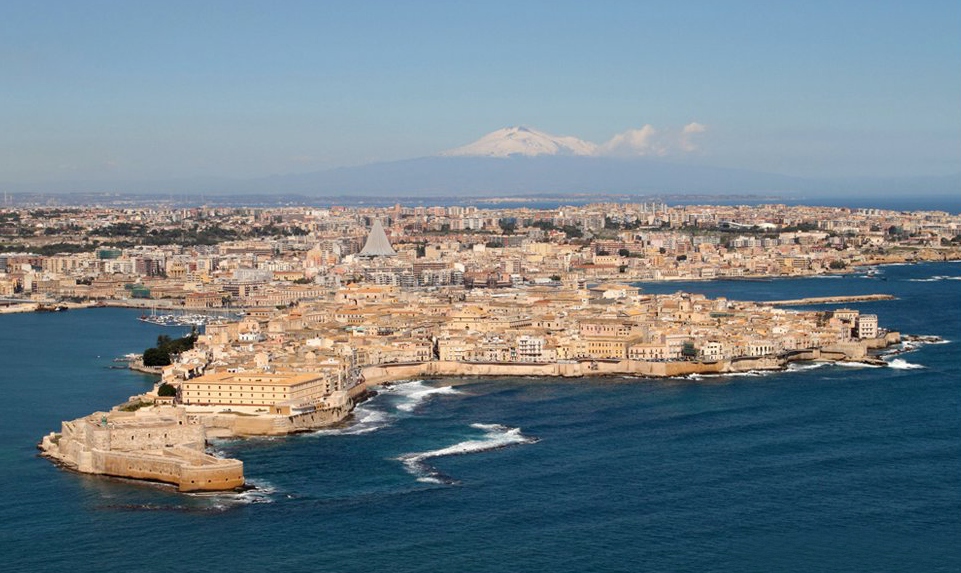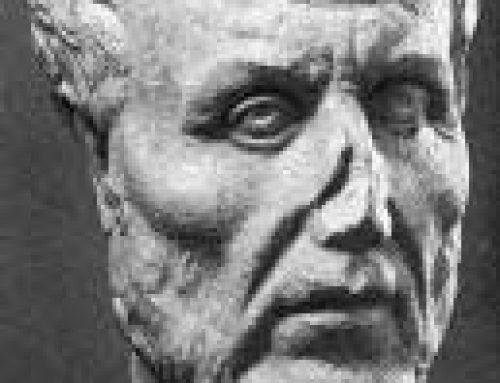
Plato’s forms: Two men sacrifice a pig on an altar, preparing to eat the pork. Athens, 400s BC
Plato’s forms
We’ve already seen that Plato said that chairs have forms. But if chairs have ideal forms, then so do people. The ideal form of a man is his soul, according to Plato. The soul is made of three parts: our natural desires, our will, which lets us resist our natural desires, and our reason, which tells us when to resist our natural desires and when to obey them.
Desire, will, and reason
For instance, when you are hungry, and you want to eat, that’s a natural desire. If you are in the cafeteria at lunchtime, that’s a good time to obey your natural desire and go ahead and eat. But if you are hungry in the middle of class, your reason will tell you to wait until lunch, and your will lets you control yourself. When these three parts of your soul are balanced, you will lead a virtuous life, says Plato, answering Socrates‘ question about what virtue is (arete in Greek).
Getting out of balance
But if the three parts of your soul are out of balance, that leads to badness. If your natural desires are too strong, you will be unable to control your urges and be always hitting people, crying, taking out your lunch in the middle of class, and falling asleep in the middle of lessons. If your will is too strong, it may keep you from listening to your natural desires, like people who use their will to stop eating entirely and become anorexic and starve themselves. And if your reason is not working right, it may tell you to control yourself at the wrong times: we call all of these a mental illness.
(For an example of a Greek story about what happens if your will and your natural desires are out of balance, look at Phaedra). You can read about these ideas in Book IV of Plato’s Republic.

Syracuse, Sicily, with Mount Etna in the background
Plato in Syracuse
Plato’s ideas on politics didn’t get much attention in Athens, and soon after the death of Socrates he left for Sicily to be the tutor of a young prince there. He tried to bring the prince up to be a good Guardian for his people. But the prince didn’t really pay any attention, and after twelve years, now in his mid-forties, Plato gave it up in despair and came back to Athens sadly.
Plato’s Academy
Back in Athens, Plato started a school for philosophers, called the Academy. The Academy was a big success, and Plato stayed there for the rest of his life, another forty years. One of Plato’s students at the Academy was Aristotle. Plato spent a lot of the last part of his life writing another political piece called the Laws, which is much more pessimistic than the Republic, and talks more about how corrupt politicians are, and how they have to be watched every minute.
Plato’s death
Plato died at 82, in 347 BC. His students at the Academy preserved and copied all of his writings, so that we have a pretty complete record of everything Plato wrote.
Learn by doing: write about a conflict between your will, your reason, and your desires.
Another idea Plato had about why people fall in love
Bibliography and further reading about Plato:
Early Socratic Dialogues (Penguin Classics), by Plato, translated by Trevor Saunders (1987). This is, according to Plato, what Socrates said.
The Republic (Dover Thrift Editions), by Plato. Translated by Benjamin Jowett. A very very cheap edition of Plato’s Republic, in his own words (translated into English).
Philosophy and Science in Ancient Greece: The Pursuit of Knowledge, by Don Nardo (2004). For teenagers. Don Nardo has written many books for young people about the ancient Greeks.
The Cambridge Companion to Greek and Roman Philosophy, edited by David Sedley (1997).




